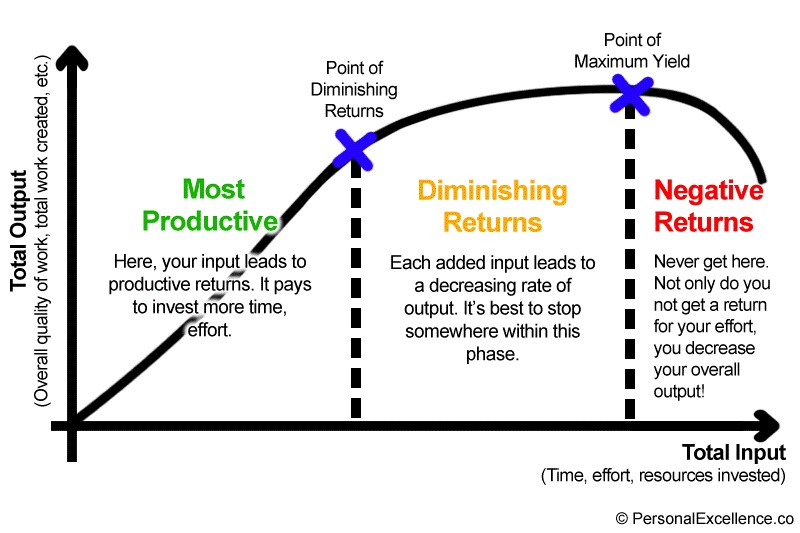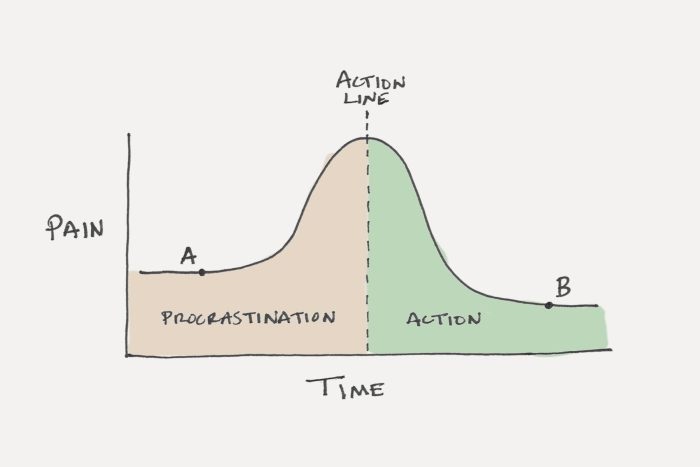A Research Paper By Russel Kruger, Life Coach, SOUTH AFRICA
Coaching Influence Adults Struggling With ADD and Suffering From Procrastination
Many adults face mountains of pressure as they navigate life. They seek solutions to the complexities life brings to their journey.
Procrastination brings forth another dimension to this pressure. Procrastination, by definition, is postponing tasks or a set of tasks. And it takes its toll, as one becomes actively aware of self-regulatory failures.
When one brings into perspective the negative effects on a person’s self-esteem and is also dealing with ADD on top of procrastination, one finds a person completely rudderless and without hope.
This journey can result in trial-and-error prescriptive medication and untold anxiety, whilst seeking all sorts of fruitless “solutions”. These “solutions” ultimately find no long-lasting sustainability.
In this research paper, we explore the benefits and the reality of identifying and dealing with adult procrastination and ADD, and how coaching can influence the life of the people in this dilemma.
Understanding the Issues of Adults Struggling With ADD
Coaching, being a relatively new and unexplored aspect of self-help globally, has not received enough accreditation, in relation to therapy and psychiatric evaluations or treatment.
Many adults suffering from ADD find themselves procrastinating in most areas of their life. Especially areas that they find uninteresting or boring. Often this tends to create large problems and anxiety.
These problems and anxiety are not only prevalent in their own lives. It also affects the lives of their spouse, relationships at work, and their interactions with their children or people that are closest to them.
Understanding Parkinson’s Law in relation to this, is vital. This Law states that work expands to fill the time available for the completion of the work and it is often generalized as “just a trait” by most people.
A complete guide on Parkinson’s Law (instagantt.com)
However, people with ADD, who also tend to procrastinate, find themselves living life and struggling with this particular process.
Jobs will be done at the last minute, causing untold stress and huge amounts of anxiety, resulting in other behavioral traits occurring. Traits such as irritability, short-temperedness, and aggression often go hand in hand with not being organized. These traits often result in damaging relationships.
Many adults will go through most of their lives not realizing the severity of their ADD or that they even have ADD. This is often only picked up later on in their life when the results of being unaware of ADD have already caused untold stress.
The truth is, generally people with ADD do not see the symptoms and often live in denial. They are generally intelligent individuals, who like to do what they feel like doing, at the moment, oblivious to the consequences their behavior has on others.
The following are signs of adult ADD, and are to be taken note of:
• Poor time-management skills
• Unfocused behavior
• Incapacity to be able to multi-task
• Excessive activity or restlessness
• Poor planning
• Low frustration tolerance
• Impulsiveness
• Disorganisation and problem prioritization
• Poor timekeeping and consistently being late
• Outbursts over trivial aspects
Adderall XR: Uses, Side Effects, Dosages, Precautions (verywellmind.com)
The above-warning symptoms are found in adults dealing with ADD. Often the forgetfulness, disorganization, and incapacity to focus create tremendous pressure on a family.
This can result in marriages being severely challenged, where the aggrieved party invariably sends their spouse to get an evaluation or psychiatric treatment, to enable a quick-fix solution to the long-term process of ADD.
Coupled with the frustration of dealing with ADD, often people with ADD find themselves in a place where they hyper-focus. This means they focus extremely well on certain areas of their lives that they are interested in.
These individuals are often highly capable of producing extremely high-quality results, again adding to the frustration of those people around them, when the same person would not be able to perform the simplest or menial tasks.
What Is Hyper Focus?
Hyperfocus affects both children and adults alike. (healthline.com)
To reiterate, this means people with ADD generally tend to do what they want to do, and put off, almost at all costs, anything that they find boring or unexciting. They often tend to only focus on aspects that they enjoy and which provide brain stimulation.
When adults are diagnosed with ADD, the result that tends to manifest is depression in the individual. The prescribed drugs also have been known to add to depression. This is because when the drug wears off, many people tend to feel even more anxious and even show signs of hostility and paranoia.
When digging deeper into the past or childhood activities in adults with ADD, generally one would find that, in most circumstances, a troubled childhood can be identified. Often, this is because the individual would have been consistently disciplined for causing disruption at school, due to their lack of concentration. This would be especially true with subjects the individual had no interest in as a child.
Undiagnosed adults with ADD would, in many instances, find some sort of inter-dependency to take the edge off their condition unintentionally. Often using drugs or alcohol, excessive exercise, and/or other stimulants that help them deal with their own internal mechanisms, whether it be subconscious or not.
Generally, one will find adults with ADD trying to cope with life on their own strength, trying to take the edge off by having a few drinks or the odd stimulant, until it reaches the point of diminishing returns where everything spirals completely out of control and the alcohol or stimulant dependency eventually takes over.

The above diagram demonstrates where people find themselves disillusioned after the awareness that what they are doing, is not working.
ADD Challenges
One needs to understand that when ADD and procrastination are married, the result is often extreme frustration for those who are close to, or who live with these adults.
Procrastination, in particular, causes huge stress. As the procrastinator does not see the stress that is apparent in the spouse. It can cause deep resentment, and can quite possibly result in a marriage ending, as was my personal experience.
Often tasks, irrespective of the magnitude of that task, seem so overwhelming to those with ADD, that they would not be actioned, due to the perceived enormity of the project.
Not being able to focus and bring the task into small bite-sized chunks, creates enormous frustration for those with ADD. This makes procrastination become the proverbial elephant in the room. Which in turn creates more anxiety and stress.
People with ADD, are generally high-functioning individuals. They do, however, need guidance in completing tasks.

Adults Struggling With ADD: How Does Coaching Help?
Understanding the person’s beliefs is part of the core fundamental process that most coaches would dig deep into when taking on a client.
Particularly clients diagnosed with ADD. One finds that these clients’ values and time allocation expertise, do not correlate.
In my instance, I valued being a devoted husband, and a loving father to five children and I felt that I was doing the Lord’s work in a purpose-driven life.
However, when I understood, through coaching, the actual time allocation I was giving all the different aspects of my life, I became aware that I was far from where I needed to be.
The amount of time I spent with my family and the amount of time I spent dealing with the various aspects of the thirteen different business entities I owned, made me aware, through the coaching process, that I was far from where I needed to be in terms of fulfilling a life that was purpose-driven.
With the coaching process, the understanding of determining my core values and being true to them became my compass and it allowed me to re-focus and re-evaluate the various aspects of my life.
Adults Struggling With ADD Coaching Strategies
1. Reframing Perspectives
What resonated with me, was reframing my perspective in each situation that presented itself. I needed to understand where my perspective had gone horribly wrong. My truth was in fact fraud. I was blocking out all the noise coming from my wife in terms of what she was needing from me. My capacity to focus on a job at hand, even a trivial job, meant so much to her, yet I did not see any importance or value in these tasks.
2. Self-Awareness
This means understanding that one needs to comprehend and reframe perspectives. My simple tasks or high moments were often done in place of being totally unaware of the damaging aspects my ADD and procrastination were causing my family in other areas they deemed important.
3. Understanding Your Core Values
Once my value purpose had been defined through the ‘bulls-eye’ exercise from coaching, I started considering a process of self-management. This entailed setting tasks and dealing with those tasks in a process of joint accountability. It was through this process that the coach would check in to see and establish whether we were on track or not.
4. Accountability
As mentioned, people with ADD are highly focused individuals needing some form of accountability to ensure that tasks are done. Medication is often just part of the process of bringing calmness into the psyche of the adult with ADD. In my case, it did not bring about the desired results.
I had the capacity to deal with many aspects at one time, however, none were given proper focus. And often important tasks were left unattended. This resulted in very serious consequences.
5. Power Tools Enable Clarity and Direction
The various tools available included dealing with and responding to high-importance aspects of my life. This resulted in my capacity to be able to reframe my perspective of exactly where I was going in all aspects of my life.
I was able to recreate a vision, with complete alignment with my plan and purpose, that allowed me to walk in my truth. The coaching process enabled me to respond, in a responsible manner, in dealing with the problems at hand. As opposed to being reactive, thereby mopping up the outcomes of procrastination in dealing with issues, especially those with high importance.

6. Self-Acknowledgement
Self-acknowledgment, and simple awareness, that many aspects of life are not running to their full capacity, becomes the key element in moving forward. The coaching process provides a space for this self-awareness to be realized.
7. Partnering for Success
The coaching process, through an agreement between the client and the coach, brings about responsibility in the client, which is often a trigger for success. This act of accountability enables action to be taken which brings forth concrete results. In my case, in particular, being ADD, this process helped enormously.
8. Turn Fear Into Confidence
The coach’s capacity to create actionable steps for the client brings them closer to their goals and aligns the client to their core values. This creates tremendous forward momentum and success and changes life dramatically.
(The 15-minute routine Anthony Trollope Used to write 40+ books)
9. Drives Motivation
Creating a structured environment, that brings the client into a place where the basic minimum daily tasks are set, plus accountability, creates life-changing characteristics in the client. Enabling a process of trust to be established, also ensures that radical change is brought about in the life of the person undergoing the coaching.
Adults Struggling With ADD Coaching Perspectives
Coaching undoubtedly enables an absolute paradigm shift, from living a rudderless life to living a well-balanced, focused, and purpose-driven life.
Coaching allows clients to reframe their perspectives whilst establishing a commitment to the significant aspects of their life. Taking responsibility is part of the journey of self-awareness, where clients regain self-respect and learn to trust their perceived truth, by being absolutely aware of where they are in their life journey.
Coaching brings a dimension of confidence, as the coach demonstrates a partnership of effective feedback. This enables controlled self-management and often helps the client overcome obstacles of negativity when dealing with underlying beliefs that hamper forward progress.
By creating accountability and acknowledging small steps of forwarding progress, the coaching process enables structure, and action and rebuilds self-trust. It also creates an attitude of gratitude from the clients.
The process is most effective in eliminating procrastination as it drives adults with ADD forward, with phenomenal results, especially in long-term coaching agreements.
References
Adderall XR: Uses, Side Effects, Dosages, Precautions (verywellmind.com)
The 15-Minute Routine Anthony Trollope Used to Write 40+ Books
https://www.mayoclinic.org/diseases-conditions/adult-adhd/symptoms-causes/syc-20350878
A complete guide on Parkinson’s Law. (instagantt.com)
What Is Hyperfocus and How Does It Affect Kids and Adults? (healthline.com)
